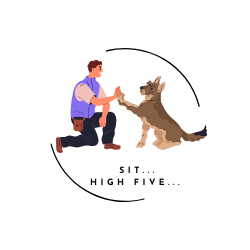So, you’ve decided to bring in reinforcements to help turn your furry tornado into a well-mannered companion. Smart move! But finding the right dog trainer can feel like online dating—so many options, but not all of them are a match. Here’s how to sniff out the best and avoid the ones who might leave you and your pup worse off than before.
What Makes a Great Dog Trainer?
A good dog trainer isn’t just someone who “loves dogs” (because, let’s be honest, we all do). Here’s what to look for:
🐾 Experience & Credentials – Look for trainers certified by organizations like the International Association of Canine Professionals (IACP) or the Certification Council for Professional Dog Trainers (CCPDT). A good trainer has both experience and knowledge—not just a love for cute puppies.
🐾 Positive Reinforcement-Based Methods – While different training styles exist, trainers who emphasize reward-based methods tend to be more effective and humane than those who rely on fear or intimidation.
🐾 Patience & Adaptability – Every dog is different, and a good trainer tailors their approach to fit your pup’s unique needs instead of using a one-size-fits-all method.
🐾 Good Communication – They should explain techniques clearly and help YOU learn, too. If they only train your dog but don’t teach you how to maintain the progress, you’ll be back to square one in no time.
🐾 A Strong Reputation – Check reviews, ask for references, and see if past clients rave about them (or run for the hills).
Red Flags: When to Walk (or Run) Away
Not all trainers are created equal. Here are some warning signs that you should keep looking:
🚩 They Use Harsh Methods – If a trainer relies on intimidation, harsh corrections, or tells you to use outdated dominance tactics, say goodbye. Your dog’s training should be built on trust, not fear.
🚩 They Guarantee Results – Every dog is different, and training takes time. If someone promises your dog will be perfectly behaved in a week, they might be selling snake oil.
🚩 They Won’t Let You Observe a Class – A great trainer has nothing to hide and should welcome you to see them in action.
🚩 They Blame the Dog – If a trainer says your dog is “just untrainable,” that’s a major red flag. A skilled trainer adapts their techniques to help any dog learn.
🚩 Lack of Reviews or References – If they have no testimonials, no website, and just a sketchy social media page, proceed with caution.
Questions to Ask a Potential Trainer
Before committing, here are some key questions to ask:
✅ What training methods do you use? (Look for positive reinforcement and science-backed techniques.) ✅ What experience do you have with my dog’s breed or behavioral issues? ✅ Can I observe a session before signing up? ✅ What happens if my dog doesn’t respond to the training? ✅ Do you offer private lessons, group classes, or both? ✅ What kind of follow-up support do you provide after training ends?
Final Thoughts: Choose Wisely!
A great dog trainer can transform your life (and your dog’s), while a bad one can set you back. Take your time, do your research, and don’t be afraid to ask questions. The right trainer will make learning fun, effective, and stress-free. And who knows—your dog might just end up being better behaved than you!


Leave a Reply